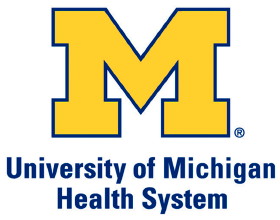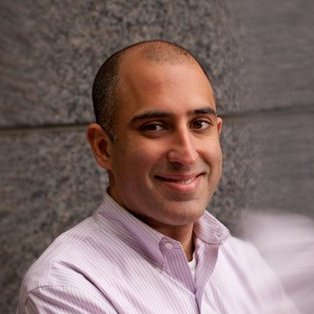JAMA Internal Medicine
See the following -
1 in 4 Seniors Have Superbugs on Their Hands After a Hospital Stay, New Research Finds
 One in four seniors is bringing along stowaways from the hospital to their next stop: superbugs on their hands. Moreover, seniors who go to a nursing home or other post-acute care facility will continue to acquire new superbugs during their stay, according to findings made by University of Michigan researchers published today in a JAMA Internal Medicine research letter. The study focused on patients who have recently been admitted to the hospital for a medical or surgical issue and temporarily need extra medical care in a PAC facility before fully returning home...
One in four seniors is bringing along stowaways from the hospital to their next stop: superbugs on their hands. Moreover, seniors who go to a nursing home or other post-acute care facility will continue to acquire new superbugs during their stay, according to findings made by University of Michigan researchers published today in a JAMA Internal Medicine research letter. The study focused on patients who have recently been admitted to the hospital for a medical or surgical issue and temporarily need extra medical care in a PAC facility before fully returning home...
- Login to post comments
Alert Overload Causing Docs To Miss Abnormal Test Results
Follow up failures continue to occur in outpatient settings even when physicians receive electronic alerts of abnormal test results, according to a new study in JAMA Internal Medicine. Read More »
- Login to post comments
Cost Reminders Via CPOE Lead To Fewer Test Orders
Displaying the cost of a test via computerized provider order entry systems prompted a 9 percent reduction in the number of tests ordered, according to a study published in JAMA Internal Medicine. Read More »
- Login to post comments
Docs Vastly Outperform Computer Algorithms in Diagnostic Accuracy
 The maxim “doctors know best” is getting support from a new study led by Harvard Medical School researchers that shows physicians made a correct diagnosis more than twice as often as 23 commonly used symptom checkers—websites and apps that help patients with self-diagnosis. The study’s results, published October 10 in the journal JAMA Internal Medicine, are being touted as the first direct comparison between human-made and computer-based diagnoses...
The maxim “doctors know best” is getting support from a new study led by Harvard Medical School researchers that shows physicians made a correct diagnosis more than twice as often as 23 commonly used symptom checkers—websites and apps that help patients with self-diagnosis. The study’s results, published October 10 in the journal JAMA Internal Medicine, are being touted as the first direct comparison between human-made and computer-based diagnoses...
- Login to post comments
Doctors Given Meals by Drug Makers Prescribed More of Their Pills
Doctors who were fed meals costing even less than $20 later prescribed certain brand-name pills more often than rival medicines, according to a new analysis published on Monday of a federal database. And in most cases, costlier meals were associated with still higher prescribing rates for Medicare Part D drugs made by the same companies that provided the food. The findings, published in JAMA Internal Medicine, are likely to intensify an ongoing debate over the extent to which ties between drug makers and doctors unduly influence medical practice and the nation’s health care costs...
- Login to post comments
Is "Modern Medicine" Indistinguishable From Magic?
 Evidently, most of health care's technologies are not yet sufficiently advanced. For example, just think about chemotherapy. We've spent lots of money developing ever more powerful, always more expensive, hopefully more precise drugs to combat cancers. In many cases they've helped improve cancer patients' lifespans -- adding months or even years of life. But few who take them would say the drugs are without noticeable side effects -- e.g., patients often suffer nausea, vomiting, hair loss, fatigue, appetite loss, sexual issues, or a mental fog that is literally called "chemo brain."...
Evidently, most of health care's technologies are not yet sufficiently advanced. For example, just think about chemotherapy. We've spent lots of money developing ever more powerful, always more expensive, hopefully more precise drugs to combat cancers. In many cases they've helped improve cancer patients' lifespans -- adding months or even years of life. But few who take them would say the drugs are without noticeable side effects -- e.g., patients often suffer nausea, vomiting, hair loss, fatigue, appetite loss, sexual issues, or a mental fog that is literally called "chemo brain."...
- Login to post comments
Low-Carb on Trial (Galileo Had It Easy)
A recent exposé in the New York Times[1] revealed massive and pervasive fraud and collusion between the sugar industry and certain medical authorities in the 1960’s designed to erroneously promote saturated fat as the culprit behind heart disease. Effectively diverting attention from the real source of the problem (the increasing consumption of dietary sugar), the food industry conspired with key authorities within the medical establishment to serve their own best interests at the expense of public health. Historic documents showed that they were intentionally concealing the fact that sugar, instead of fat, was knowingly to blame...
- Login to post comments
NIH And VA Address Pain And Related Conditions In U.S. Military Personnel, Veterans, And Their Families
Thirteen research projects totaling approximately $21.7 million over 5 years will explore nondrug approaches to managing pain and related health conditions such as post-traumatic stress disorder (PTSD), drug abuse, and sleep issues. The effort seeks to enhance options for the management of pain and associated problems in U.S. military personnel, veterans, and their families...
- Login to post comments
Unreported Robot Surgery Injuries Open Questions For FDA
When Sheena Wilson, 45, underwent robotic surgery for a hysterectomy in May, she didn’t know the Intuitive Surgical Inc. system used by her doctor was previously tied to a variety of injuries for the same procedure. Read More »
- Login to post comments
Workplace Factors Contribute to Burnout in Family Physicians
Family physicians who work in a hectic or chaotic environment, those who report high rates of job-related stress, and those who spend time at home working on electronic medical record (EMR) tasks may be particularly vulnerable to burnout, researchers report. In a study designed to assess workplace factors associated with burnout among family physicians, Monee Rassolian, MD, from Michigan State University, Flint, and colleagues administered an abbreviated burnout survey to a random sample of family physicians applying to take the 2016 American Board of Family Medicine Certification Examination. They report their findings online May 8 in JAMA Internal Medicine...
- Login to post comments
You Won't Believe the Outrageous Ways Big Pharma Has Bribed Doctors to Shill Drugs
 At the 2010 meeting of the American Psychiatric Association in New Orleans, a psychiatrist from the East coast shared her anger with me about the recent clamp down on Pharma financial perks to doctors. Before news organizations and the 2010 Physician Financial Transparency Reports (also called the Sunshine Act, part of the Affordable Care Act) reported the outrageous amount of money Pharma was giving doctors to prescribe its new, brand-name drugs, there was almost no limit to what was spent to encourage prescribing...
At the 2010 meeting of the American Psychiatric Association in New Orleans, a psychiatrist from the East coast shared her anger with me about the recent clamp down on Pharma financial perks to doctors. Before news organizations and the 2010 Physician Financial Transparency Reports (also called the Sunshine Act, part of the Affordable Care Act) reported the outrageous amount of money Pharma was giving doctors to prescribe its new, brand-name drugs, there was almost no limit to what was spent to encourage prescribing...
- Login to post comments